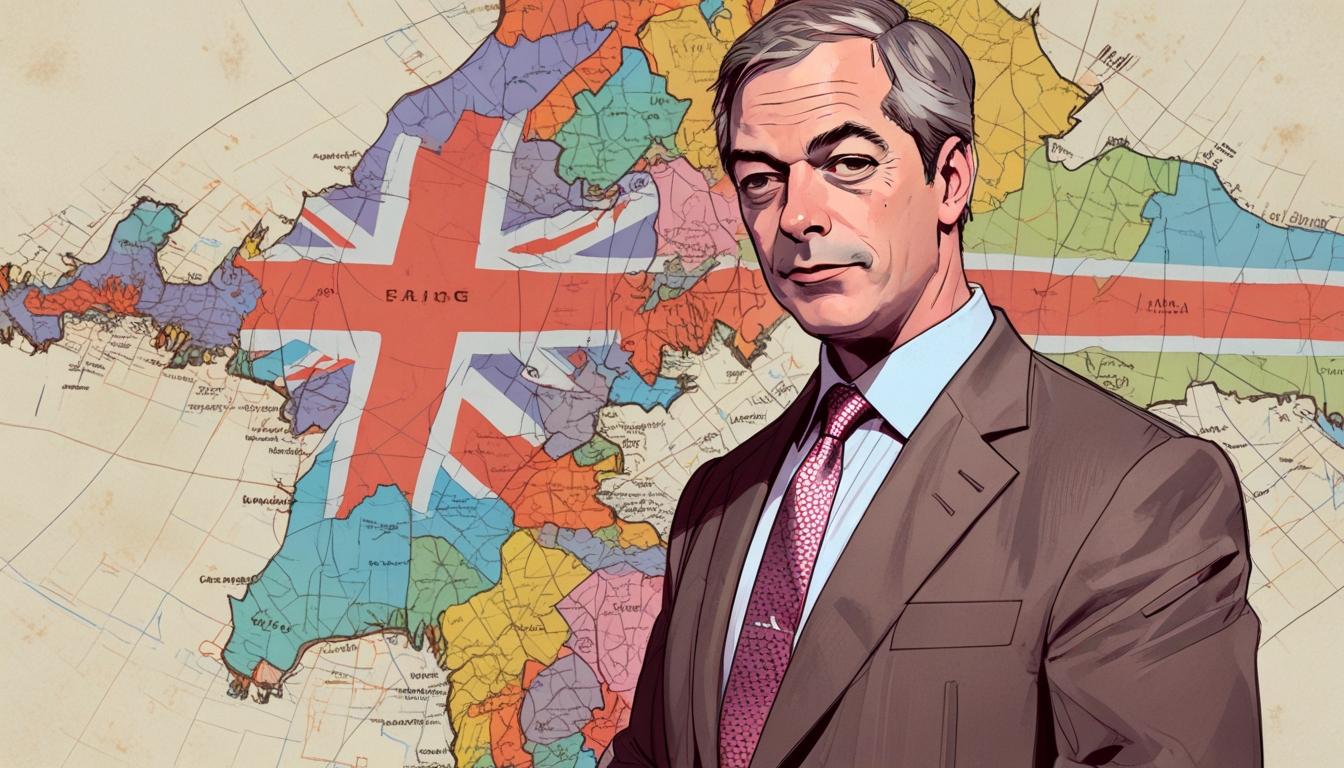Peter Mandelson has dismissed the notion of Nigel Farage ascending to the role of Prime Minister, even as his party has made notable strides in local elections. At a recent event in Washington, the UK’s ambassador to the US recognised Farage’s growing popularity as symptomatic of escalating voter dissatisfaction, particularly concerning Labour’s failure to deliver meaningful change since assuming power. “I’m not sure [the recent success] translates into people imagining that he’s going to be prime minister,” Mandelson stated, although he acknowledged a “strong, popular vote” for Farage that should not be underestimated.
The local elections revealed a significant shift in the political landscape, with Reform UK securing hundreds of council seats. Recent polling data indicates Labour has dipped to 23%, while Reform has surged to 28%, creating shockwaves throughout Westminster. This decline in Labour’s fortunes mirrors the early challenges the party faced after its 1997 landslide victory, with Mandelson himself noting that voters can quickly become impatient, demanding immediate transformative change that has not materialised under the new government.
Mandelson, a key figure from the era of New Labour, emphasised how today's political volatility starkly contrasts with the relative stability of the late 1990s. “We didn't have the same volatility of nationalism and populism that exists," he remarked, pointing out that Farage's influence was virtually absent back then. He suggested that the current turbulence can be attributed to global pressures and the swift impacts of rapid globalisation, painting a concerning picture for conventional political frameworks.
Originally emerging as the Brexit Party in 2018, Reform UK has established itself as a formidable force within British politics, unwavering in its right-wing stance. The party's platform focuses on strict immigration control and a clear rejection of net-zero targets. By targeting disillusioned Conservative voters, they are pushing for significant changes, including a decisive break from the European Court of Human Rights. However, experts warn that limited local funding could thwart the realisation of these ambitious promises.
With Prime Minister Rishi Sunak’s announcement of a snap election on 4 July, Reform UK faces an unexpected test. This call for early elections has caught the party unprepared, revealing weaknesses in its campaign infrastructure. While Farage has chosen not to stand as a candidate, he remains an essential strategist for Reform UK, leaving uncertainties about the party’s ability to convert heightened discontent into electoral success. Polling reveals support estimates between 8% and 14%, yet the party grapples with significant organisational challenges, especially in distinguishing its message from the Conservatives amid ongoing leadership turmoil.
Despite Farage's previous failures to secure a parliamentary seat, his media visibility and leadership become crucial for the party's strategy. However, there is a real risk that Reform UK could inadvertently split the Conservative vote, facilitating another Labour ascent, especially as Keir Starmer focuses on enhancing the UK’s nuclear capabilities and defence initiatives in response to the shifting political landscape.
The current climate of political volatility underscores an urgent need for established parties to adapt and meaningfully address the growing disillusionment with governance. While Farage's rise signifies a substantial challenge for the current political leadership, the ability of traditional parties like Labour and the Conservatives to respond effectively will ultimately determine the trajectory of the UK’s political future.
Source: Noah Wire Services
